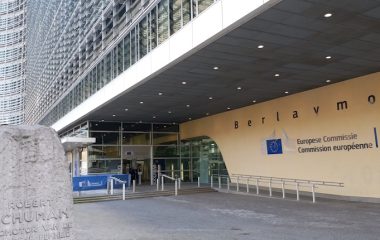
Photo: Kadri Simson / Twitter
The European Union will propose new global targets: to double the energy efficiency improvement rate this decade and triple the annual rate of renewable energy deployment by 2030, European Commissioner for Energy Kadri Simson said. She is the first high-ranking official from the administration in Brussels to suggest that the energy crisis is finished or at least ending.
An informal meeting of environment and energy ministers was held in Spain, which took over the EU presidency until the end of the year. Speaking at the gathering, European Commissioner for Energy Kadri Simson noted that the planet is experiencing the highest temperatures ever and called on member states to double down on their decarbonization efforts.
Eliminating greenhouse gas emissions is becoming priority again
“Last year in July we were discussing how to cut gas demand in Europe by 15%. It was just a year ago. We discussed that to avoid a dramatic crisis. Today in Valladolid we discussed the future of our energy system. Europe is shifting the focus from crisis response to its net zero agenda. This change of focus in itself is excellent news,” she stressed. The statement made Simson the EU’s first top official that claims the energy crisis is finished or at least coming to an end.
The need for electricity system flexibility could increase up to 30% of total electricity demand by mid-century
At the 2023 United Nations Climate Change Conference in Dubai, which starts on November 30, the EU is set to propose a voluntary, non-binding pledge to triple the global rate of deployment of renewables through 2030, the commissioner stressed. “For energy efficiency, we propose to double the global rate of energy efficiency improvements this decade compared to the previous decade,” Simson said.
Renewables to make up 69% of energy mix in 2030
The EU added a record renewables capacity last year and the commission expects a further increase in 2023, she asserted. The share of renewable energy in the electricity system is estimated to reach 69% by 2030 and up to 80% by 2050, Simson told energy ministers. The need for electricity system flexibility could increase up to 30% of total electricity demand by mid-century, she said.
Moreover, the commission’s Executive Vice-President for the European Green Deal Frans Timmermans said the EU would push for a global pledge at the COP28 to phase out all unabated fossil fuels “well ahead of 2050.” The so-called carbon capture and storage solutions would only have a small role, in his view.




















Be the first one to comment on this article.